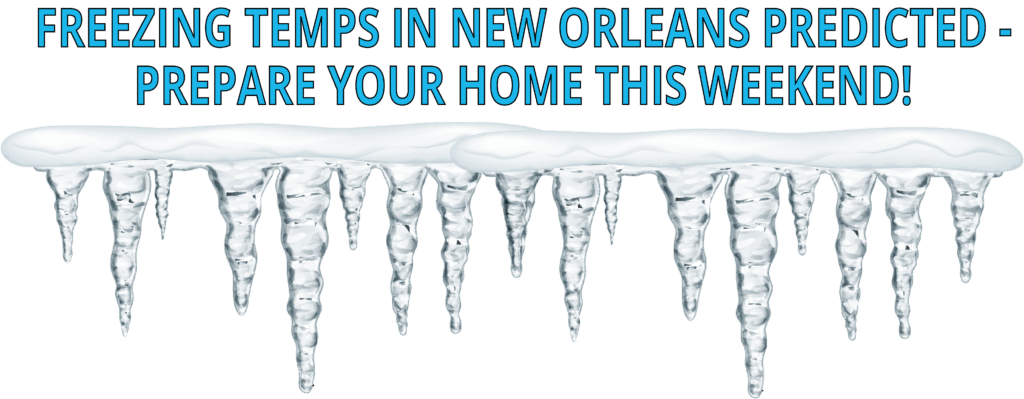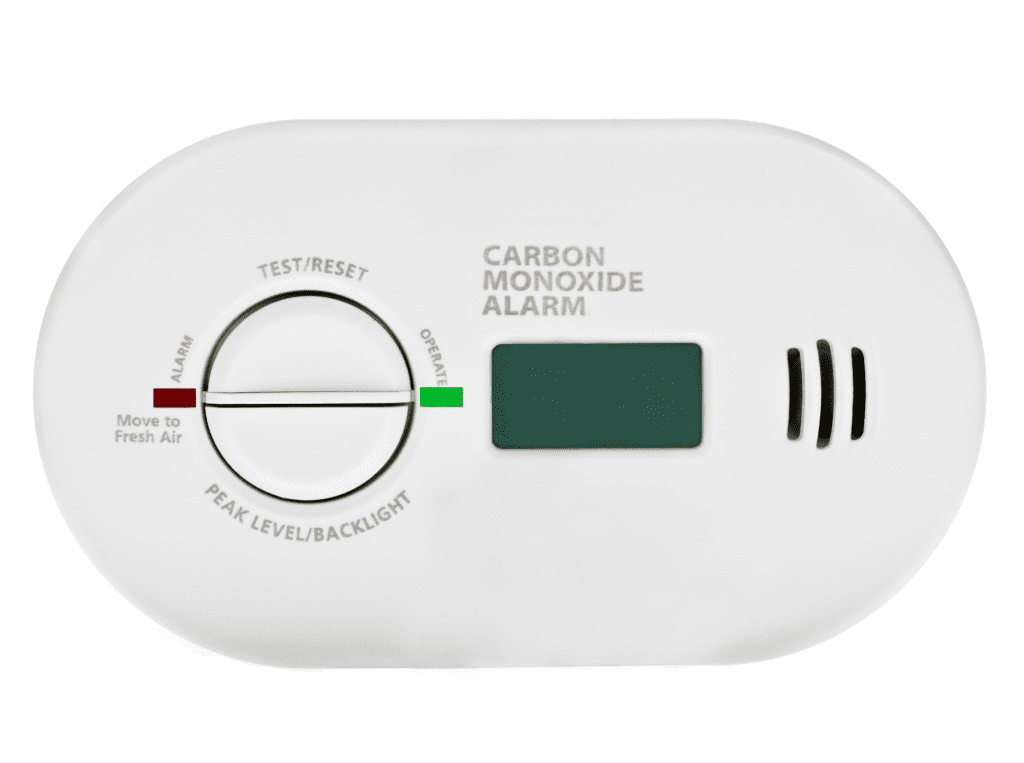
If you’ve been keeping an eye on the news, you know that we are bracing for some freezing temperatures. In the rare event temperatures in New Orleans drop below freezing, it’s important you know how the weather can affect your roof and what to do in advance of the winter weather to protect your home from potentially damaging ice.
How Freezing Temperatures Can Affect Your Roof:
Ice dams form when the sleet melts on the upper part of your roof then freezes again on its way down. This build-up of an “ice dam” can be particularly damaging because it can seep under your shingles and into your attic.
Condensation can occur when an improperly or inadequately insulated roof allows the warmth of your home to conflict with the freezing outdoor temperatures. This causes condensation on the underside of your shingles which can lead to mold, mildew, and damage to the interior of your home.
Because snow is rare in the area and brief when it does occur, it is more likely that icicles will be the main problem New Orleans residents will be dealing with. The weight from icicles that do not melt by the end of the day can cause damage to gutters and flashing.
Steps to Protect Your Home From the Freeze:
1. Make sure your house is well-insulated.
Attics and roofs are notorious for lack of proper insulation and should be inspected by a licensed roofer to address any deficiencies ASAP. A properly insulated roof will maximize energy savings and prevent potentially damaging condensation from occurring. Loose or missing shingles compromise the integrity and insulation of the roof and left unaddressed before a freeze could prove to be a costly mistake.
Inspect your windows and doors for any drafts or openings before the weather arrives. Seal exterior windows and doors by using weather-stripping for your doors and caulk to seal your windows. Sealing cracks and openings will prevent cold drafts from coming in and reduce your heating bill.

2. Inspect your Heating System
Have your heater inspected by a licensed HVAC technician to ensure it is in good working condition. Additionally, it is important to have working carbon monoxide detectors placed strategically throughout your home to detect if there is a leak.

3. Protect your pipes.
Disconnect all your outdoor hoses from the spigots, drain them and store them in your shed or garage. Then, securely wrap each outdoor spigot with an insulated sleeve or foam faucet cover to help keep the spigot from freezing. Inside your home, make sure you put your faucets on pencil thin steady stream of water to keep the water circulating, and open any cabinets under the sink to give warm air access to your pipes.

4. Clean your gutters.
It’s important to clean out your gutters in advance of the freeze to prevent them from becoming too heavy with ice and icicles. This extra weight can cause damage to the gutters and flashing.

5. Cover and protect your outdoor plants.
If you have the space, bring potted plants indoors to a garage or shed, to protect them from the freezing temperatures. Plants that cannot be moved should be covered to help them survive the freeze.

And of course, above all else…protect the people and pets in your life! Check on your elderly family, friends, and neighbors to offer them a hand. Bring outdoor pets inside and give them a warm hug and a place to rest. Together we will be prepared for whatever the weather has in store for us!